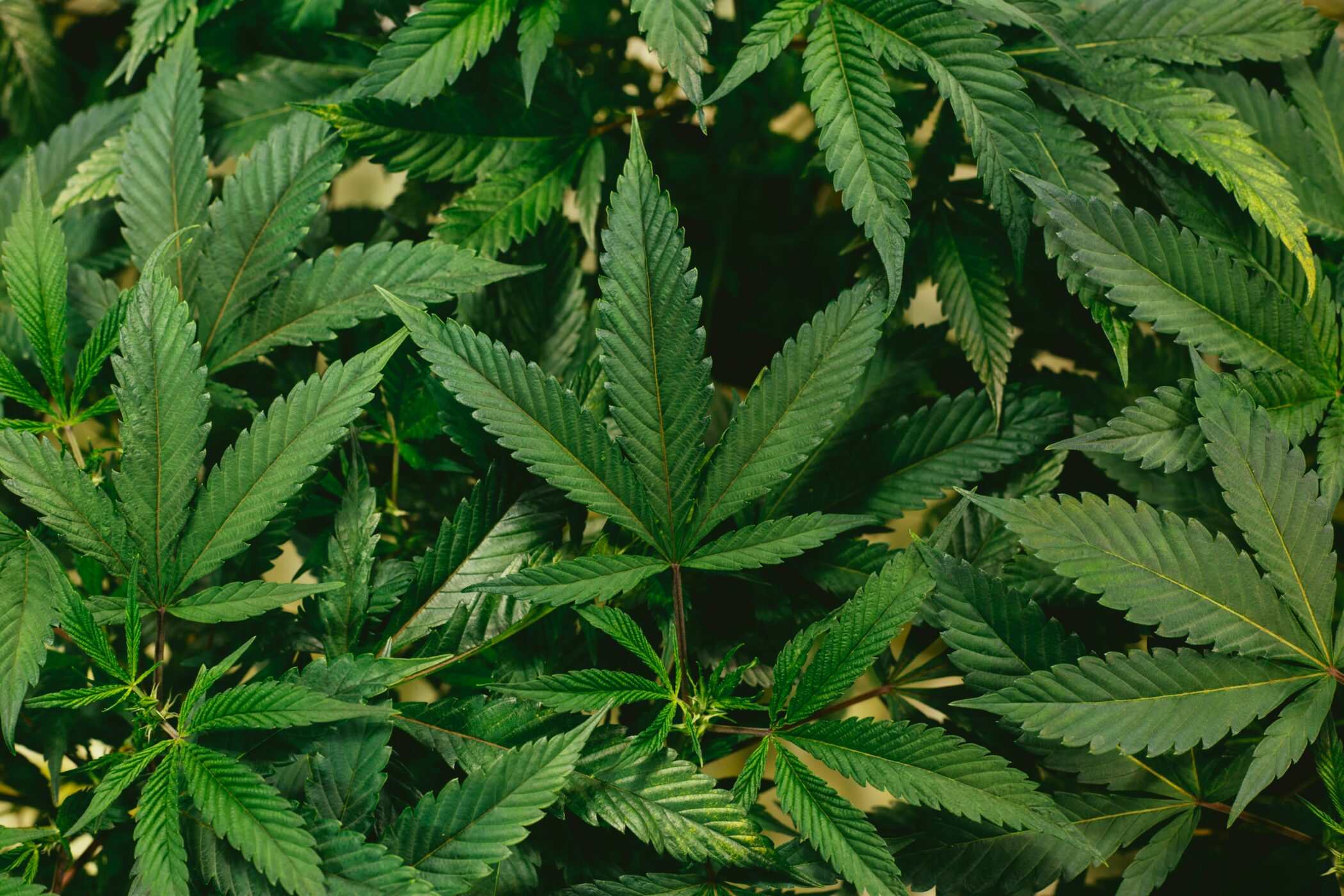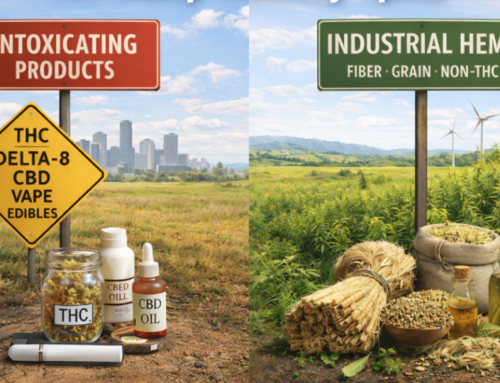Alphabet Soup: Common Acronyms in Cannabis and Why You Need to Know Them
LOS ANGELES- Running a cannabis business means speaking more than the language of cultivation and branding — it means speaking compliance, with all its acronyms. You’ve likely seen a wall of them — ADA, OSHA, EEOC, FMLA, DOL, and more — and thought, “Do I really need to know all this?”
 The answer: absolutely. These acronyms represent active regulatory forces that directly influence how your cannabis business hires, compensates, safeguards, and retains its workforce — far beyond the legacy of traditional industries. Knowing these acronyms is key to maintaining compliance and building a resilient, well-managed business.
The answer: absolutely. These acronyms represent active regulatory forces that directly influence how your cannabis business hires, compensates, safeguards, and retains its workforce — far beyond the legacy of traditional industries. Knowing these acronyms is key to maintaining compliance and building a resilient, well-managed business.
Welcome to the alphabet soup of cannabis compliance. Let’s decode what matters and why.
Why Acronyms Matter in Cannabis
In a sector already juggling complex state licensing, federal prohibition, and cash-heavy operations, HR compliance might seem secondary. But it’s not. Cannabis ranks among the most closely monitored industries in the U.S., with regulators paying attention to both cultivation practices and employment standards.
Miss a required form? Misclassify an employee? Disregard an ADA accommodation request? You risk more than financial penalties, including potential lawsuits, license suspension, and damage to your reputation.
Acronyms are the shorthand of accountability. They represent legal obligations, regulatory bodies, and labor protections. Understanding what each one stands for helps you build a safer, fairer, and more resilient workplace.
Let’s Start with the Big Ones
Here’s a breakdown of the most important acronyms you’re likely to encounter, especially if you’re a cannabis or cannabis-adjacent business: ADA, OSHA, DOL, WH, EEOC, and ACA.
ADA – Americans with Disabilities Act
The ADA requires employers to provide reasonable accommodations to qualified individuals with disabilities, enabling them to perform essential job functions. A critical component of ADA compliance is maintaining accurate job descriptions that clearly define the essential functions of each role — these serve as the foundation for determining reasonable accommodations. In cannabis, this could mean adjusting job tasks for an employee with chronic pain or ensuring your dispensary is physically accessible.
OSHA – Occupational Safety and Health Administration
OSHA enforces safety standards to protect employees across various work environments. In cannabis, this includes cultivation facilities, manufacturing labs, and dispensaries. Employers must ensure compliant ventilation systems, proper PPE protocols, and rigorous training procedures. Dispensaries, in particular, must meet OSHA requirements for ergonomics, air quality, and electrical safety.
FMLA – Family and Medical Leave Act
The FMLA allows eligible employees to take up to 12 weeks of unpaid leave for qualifying family or medical reasons. However, this federal protection only applies to private-sector employers with 50 or more employees within a 75-mile radius. Cannabis businesses meeting that threshold must properly track qualifying events like childbirth, serious illness, or caregiving obligations — and administer leave without retaliation or discrimination.
EEOC – Equal Employment Opportunity Commission
The EEOC enforces anti-discrimination laws in the workplace. Cannabis businesses must ensure fair and equitable hiring, pay, promotion, and disciplinary practices regardless of race, gender, age, religion, disability, or sexual orientation. DEI initiatives, when done right, work hand-in-hand with EEOC protections.
COBRA – Consolidated Omnibus Budget Reconciliation Act
If your cannabis business offers health benefits, COBRA compliance is required. This law gives employees the option to continue their health insurance coverage after leaving employment. Employers must provide timely notices and ensure employees are informed of their rights.
Forms, Filings, and Federal Overlap
Beyond agencies, there are acronyms tied to the forms and processes every employer should know.
W-2 & W-4
Employees complete the W-4 to set their tax withholdings; employers issue the W-2 at year-end for tax reporting. In cannabis — where 280E adds tax complexity — tight payroll systems and accurate documentation are non-negotiable.
I-9
Every U.S. employer must complete and store Form I-9 to verify employee eligibility to work. In cannabis, where the federal status is ambiguous, this is even more critical. These forms must be filled out correctly, stored securely, and completed within three business days of hire.
FUTA & SUTA
The Federal Unemployment Tax Act and State Unemployment Tax Act fund unemployment insurance. Cannabis employers must contribute just like any other business and are subject to audits if they fall out of compliance.
IRS & DOL
The IRS handles your taxes — but the Department of Labor (DOL) watches your labor practices. Under the Fair Labor Standards Act (FLSA), cannabis employers must properly classify employees, track hours, pay overtime, and ensure wage compliance.
ERISA – Employee Retirement Income Security Act
ERISA governs benefit plans like 401(k)s and health insurance. Even in cannabis, offering these plans means maintaining fiduciary responsibility, detailed documentation, and compliance with federal reporting requirements.
Civil Rights & Inclusion
The cannabis industry often champions progressive values — but equity in hiring and workplace practices must be backed by real systems.
DEI – Diversity, Equity, and Inclusion
Though not a legal requirement, DEI programs often intersect with compliance topics like ADA, EEOC, and GINA. Creating inclusive hiring practices and building equitable cultures supports both people and risk mitigation.
GINA – Genetic Information Nondiscrimination Act
Prevents employers from using genetic information to make employment decisions. Rare in day-to-day cannabis ops, but still applicable.
AA – Affirmative Action
If your cannabis company has government contracts or participates in state equity programs, affirmative action policies may be required. However, this area is evolving. As of January 2025, Executive Order 14173 rescinded prior federal affirmative action mandates for contractors. Cannabis businesses with government ties must now reassess their obligations to avoid compliance missteps under the new merit-based framework.
About Daniela Williams
Daniela Williams is a strategic growth executive with over 20 years of experience in human capital management, operations, and scalable business systems. She has held leadership roles at ADP TotalSource, where she led high-performing teams and shaped go-to-market strategies in the PEO and compliance space. At XMI Human Resource Solutions, her leadership contributed to the company’s acquisition by G&A Partners.
Now as Chief Growth Officer at Paylient Inc., Daniela drives business development, market expansion, and client strategy. Known for her clarity, execution, and customer focus, she helps cannabis and other highly regulated businesses align growth initiatives with operational reality.
To explore how strategic HR and compliance solutions can accelerate growth for your cannabis business, contact Daniela at [email protected].




































